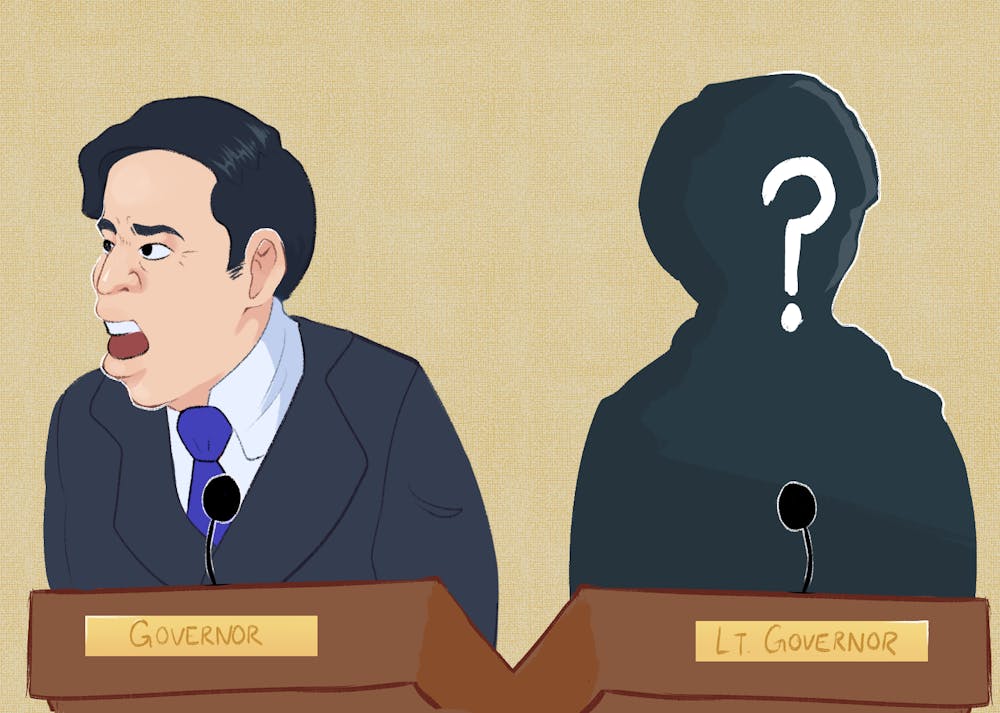This election could decide whether Arizona governors can choose who will succeed them with a bipartisan ballot proposition.
Proposition 131 is a state ballot measure that, if it passes, creates the office of lieutenant governor in Arizona. Arizona state senators J.D. Mesnard, R-Chandler, and Sean Bowie, D-Phoenix, introduced the proposition earlier this year.
According to Mesnard and Bowie in the Arizona general election voting guide, the creation of a lieutenant governor is "good governance." They said it will fix the gap between the governor and the secretary of state and create a more structured hierarchy within the state government.
Currently, in the event of an emergency, the governor is succeeded by the secretary of state, followed by the attorney general. This would mean that if something were to happen to a Democratic governor, and the secretary of state was Republican, the Republican that was voted into the secretary of state would take over as governor.
"What’s primarily motivating this is an issue of the party or that people vote for a candidate, and they're expecting that party to stay for four years," said Dave Wells, a political science lecturer at the School of Politics and Global Studies. "If that person were to leave and a different party were to take over, that wouldn't be what voters intended. That's the argument for the lieutenant governor."
Arizona is one of five states that do not have a lieutenant governor. If this proposition is passed, the lieutenant governor would also be appointed as chief of staff, director of the Arizona Department of Administration or to fill any other position appointed by the governor. The duties of lieutenant governor vary from state to state, but Arizona’s interpretation would be closer to New Jersey’s.
The new proposition would affect elections as well. If it passes, the next gubernatorial election in 2026 would have two names on each candidate's ticket instead of one. Gubernatorial candidates would need to select their running mates within 60 days of the start of their campaigns.
Wells said that voters generally fall into two sides of this issue. On one side, voters may not want the possibility of the power of the party they vote for to be upended by an emergency like a death or a resignation. Some students agree that they want a say in who gets to succeed as a sitting governor.
"That’s basically a breach of democracy," said Anna Villard, a sophomore studying sociology and member of Young Democrats at ASU.
On the other hand, Wells said voters may feel that lieutenant governors are not vetted enough for the job and that it would change a system that already works for them. Some said that it could just create a new position in government when it may not be needed.
“Arizona already has a plan in place if something happens to the governor. I’d rather put tax dollars elsewhere, preferably schools or something,” said John Dreveny, a volunteer with Mission for Arizona, a campaign organization for the Arizona Democratic party.
This is not the first time this proposition has been on the state ballot. In 1994 and 2010, voters shot similar propositions down.
Wells said he did not know how this proposition will do on election day, but he called it well-structured because it gives the lieutenant governor a job in a state department. Wells said that voters should think about who they are voting for on top of their ballots and whether they are comfortable with that line of succession.
"You might also think about how comfortable you are if Mark Finchem becomes elected as the secretary of state and how well you feel he's qualified to become governor of this state in the event that Katie Hobbs or Kari Lake were to leave office," Wells said.
Edited by Reagan Priest, Wyatt Myskow and Grace Copperthite.
Reach the reporter at sbrenna5@asu.edu and @shanebrennan36 on Twitter.
Like The State Press on Facebook and follow @statepress on Twitter.

Shane Brennan is the former Editor-in-Chief at The State Press and an ASU alum. He was a sports and politics reporter, before becoming the editor of the politics desk. He has covered local and state politics for the Arizona Capitol Times and Cronkite News.




